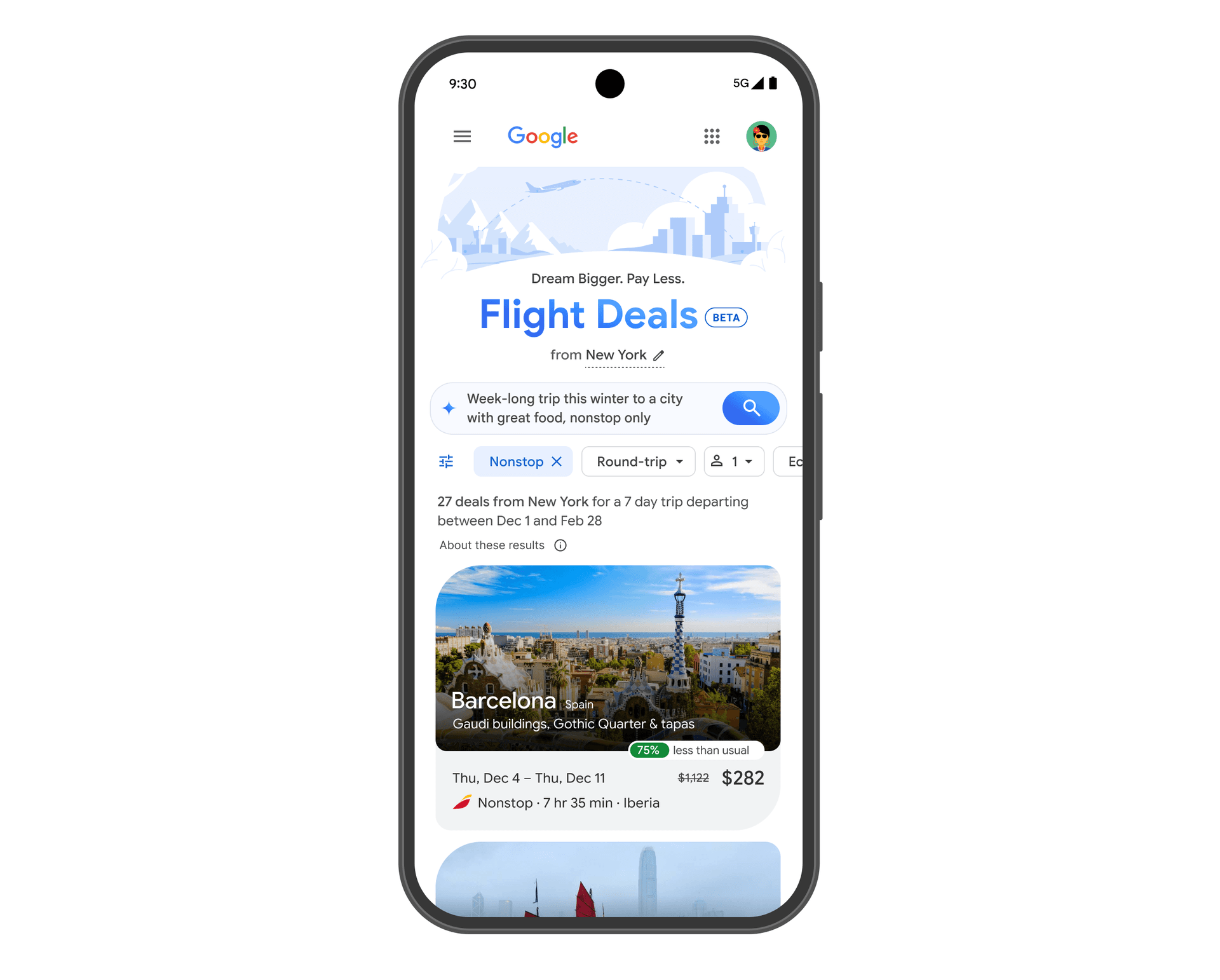Google Brings AI Powered Flight Deals To Travelers Worldwide
Google is rolling out its AI powered Flight Deals tool globally and expanding travel features directly inside Search, a move that aims to simplify ticket hunting and surface lower fares for more users. The rollout could reshape how consumers compare prices, how airlines set fares, and how regulators approach algorithm driven pricing.

Google announced a global rollout of its AI powered Flight Deals tool and a suite of new travel features embedded directly in Search, making machine learning driven fare discovery available to users around the world as of today. The company says the move is intended to help travelers find lower cost options more quickly by surfacing deals, alternative dates, and routing suggestions without requiring a separate visit to a booking site.
The Flight Deals feature builds on Google Flights and the company’s long standing travel tools by layering generative and predictive models on top of fare data. For users that opt in, Search will highlight opportunities such as lower price windows, combinations of nearby airports and different day selections, and put those options into a compact summary designed for fast decisions. The additions are immediately visible within the main Google Search experience in multiple languages and regions, rather than being confined to a standalone app.
For consumers, the practical benefit is speed and convenience. Instead of scanning multiple travel sites and calendars, travelers can see recommended low fare dates or nearby airport alternatives inside a single search. That could particularly help leisure travelers with flexible schedules, and those booking international trips who are sensitive to small fare differences that compound with taxes and fees.
The industry impact may be broader. Travel search and booking platforms have competed for years on price prediction, calendars and alerts. Google's tighter integration of AI driven recommendations into Search raises the bar for rivals that rely on specialized apps to deliver similar signals. Airlines and online travel agencies may respond by adjusting how they display inventory and manage dynamic pricing, as more users receive machine curated guidance on when to buy.
The technology also surfaces longstanding policy questions. Machine learning systems trained on historical fares and live inventory can produce useful predictions, but they can also entrench market dynamics or amplify opaque pricing practices. Consumer advocates will be watching whether AI driven nudges favor certain carriers or omit ancillary costs that materially affect a ticket’s final price. Privacy and data governance concerns are relevant as well, since personalized recommendations typically rely on user signals such as past searches and location history.
Regulators in several jurisdictions have scrutinized algorithmic pricing and platform power in recent years, and the new Google features are likely to draw attention from competition authorities and consumer protection offices. Transparency around how recommendations are generated, and clear disclosures about fees and cancellations, will influence whether the tool improves choice or simply redirects demand.
As AI becomes embedded in more everyday services, the Flight Deals rollout highlights a transition in travel booking from search plus choice to search plus counsel. For travelers who value convenience and time saved, that can be a welcome change. For the wider travel ecosystem, it is a signal that algorithmic assistance will be a decisive battleground over where consumers start, and ultimately complete, their journeys.


